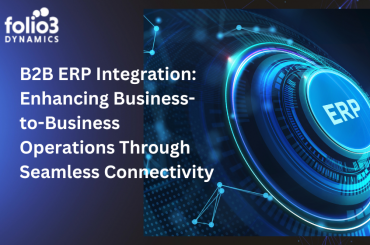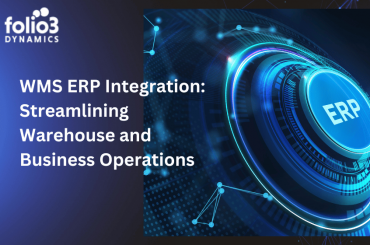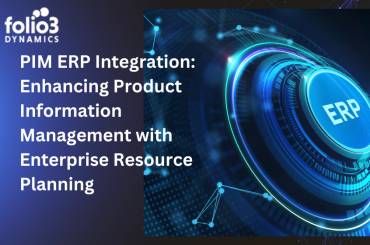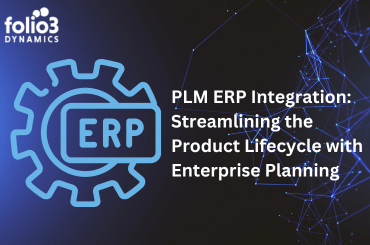Table of Contents
Data migration is essentially the procedure of moving data from one data storage system to another. Data can be transferred between various data formats and applications to be easily accessible to its users.
The procedure of data migration comprises a few essential steps like organizing the data, extracting it, and then altering the data.
As far as the process of data migration is concerned, scheduling it and then actually performing it can be a little tricky, especially if you have no prior experience in this. But at the same time, it is very crucial to keep up with the latest trends and updates to CRM software. Following these simple yet effective steps can enhance the productivity and efficiency of your team as a whole.
For this, you need to opt for those options where your data is easily accessible and easy to use, saves money, allows you customization, provides data privacy, and integrates with Microsoft Products. Keeping in view all the above-mentioned requirements, what else can be a better option for you to migrate your data to than Microsoft Dynamics 365? You can integrate and transfer all your data using the Folio3 Microsoft Dynamics 365 which specializes in broad spectrum services around Microsoft Dynamics.
But you may be thinking, when and why should you migrate data to Dynamics 365?
When should you migrate to Dynamics 365?
The following are some common scenarios that require data migration:
- You may need to migrate your data to Microsoft Dynamics 365 when you require replacement, upgrade, and growth of storage systems and tools.
- If your firm is moving from a local storage system to a cloud-based system to optimize operations, you may need to migrate your data to Dynamics 365.
- Consolidation of Websites is another scenario where you may have to consider migrating your data to Dynamics 365.
- Building new systems to coexist and enrich the already existing applications by transferring the same dataset may also require data migration.
- You may need to transfer data to Dynamics 365 to maintain the infrastructure.
- When you consider swapping to concentrated databases to achieve interoperability, you need to migrate data.
- Consolidation of information systems and data center relocation are some other situations where you may have to consider transferring data to Dynamics 365.
Why Move to Dynamics 365?
By now, you may have realized if you need to migrate your data to Dynamics 365 or not. But you may be thinking why move to Dynamics 365 in the cloud?
Here are a few reasons why you should.
-
Enhance protection, privacy, and dependability
By migrating your data to Dynamics 365, you can achieve peace of mind knowing that your sensitive and important company data is reserved in highly safe and secure centers. Your data will be available to you whenever you need it and you won’t have to worry about it being misused or misplaced.
-
Improved scalability and flexibility
You can help your business grow without making any costly changes or including any pricey features to your IT infrastructure which also includes the capacity to start and deploy new users.
-
Bring all your data together
Transferring your data to Dynamics 365 lets you relate this data to make having a 360-degree view of your business possible and make it easy for you to access it from ordinary solutions like Microsoft 365 and Microsoft Power BI.
-
Adapts to your business needs
You can improve your Dynamics 365 experience with prebuilt business applications, formulated by Microsoft. You can also select partners for the organization through the Microsoft AppSource marketplace.
-
Improve affiliation and productivity
You can enhance teamwork and stimulate productivity by accessing data from anywhere, at any time, from any device, whatever is feasible for you. You can also enable remote workers to share data in real-time, authorizing effortless and more efficient collaboration.
How to Migrate Data to Dynamics 365?
Now that you have decided to finally migrate your data to Dynamics 365 after considering all the benefits of doing so, you may now be thinking, how do I transfer the data now? Here we’ve documented some of the most important steps to make the transfer of data easy for you.
Step 1: Prepare your group or team for the Dynamics 365 data migration process
Step 2: Select features you will use on the new platform. You may have to consider a lot especially if you are transferring the data from an older CRM.
Step 3: Clean and map the data and review the quality of the data to avoid any mishap. You may have to define what data needs to be scrubbed. So make sure to analyze the source data and determine whether the fields you are currently using are important or not.
Step 4: Select your migration tool because you don’t have to directly transfer the data to Microsoft Dynamics 365. You must put the data from the source CRM into a flattened file type so that you can map it to the respective fields within Dynamics 365.
Step 5: Now complete the migration integration scripting in a testing environment and define some unique identifiers for data. Store it in your target data to migrate.
Step 6: Test the data transfer to make sure that all the data you extracted gets included and is in the correct format. This will help you to determine the amount of time data migration shall take.
Step 7: Once you have followed all the above-mentioned steps, you can now finalize the data migration since you are ready to proceed to the go-live.
All in all, data migration can be done for several reasons and organizations undergo this process when they might need to revamp an entire system, make an advancement in databases, inaugurate a new data repository, or incorporate new data from an acquisition or other source. When data migration becomes important for your organization, you need to consider the best options out there to transfer your data. Microsoft Dynamics 365, with all the above-mentioned features, becomes an ideal choice for organizations to transfer their data.





